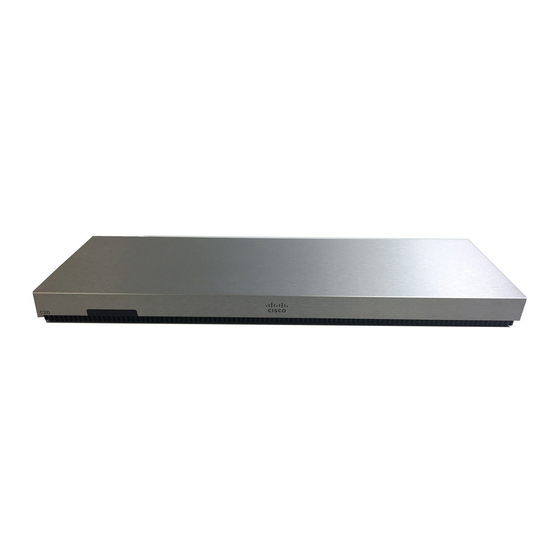Cisco TelePresence Video Systems
Contents
Configuring H.323 and SIP
(When not set by a provisioning system)
To get online and ready to place and receive calls, your system
must be set up properly. Your system uses either the H.323
protocol or the SIP protocol for video calls.
NOTE:
Contact your system administrator, or service provider,
for information about the network settings.
For networks administered through Cisco TMS (TelePresence
Management Suite), your Cisco TMS administrator will help
you to get online.
You can find information about administering through Cisco UCM
in the
Administering TC endpoints on CUCM
Back to task overview
D14639.12 Video Systems Getting Started Guide TC7.0, DECEMBER 2013.
Introduction
User interfaces
H.323
If in doubt about any of the parameters below, contact your
system administrator or your service provider.
1. Tap the user name in the upper left corner and tap
> Administrator >
2. Enter the
input fields.
3. To enter the H.323 gatekeeper address manually, tap
Manual
in the
Gatekeeper Address
guide.
4. If the H.323 gatekeeper requires authentication and you
want your system to authenticate itself to the gatekeeper,
tap
ON
in the
Login Name
Otherwise, tap OFF.
5. Tap
Save
to confirm the changes, or
saving.
6. Review the System Information page and verify the H323
settings.
If you have successfully registered to the Gatekeeper, the
Status
is shown as
7. Tap
Exit
to return to the home menu.
Confirguration
Configuration
Settings
H323.
H323 Number
and
H323 Id
in their respective
Gatekeeper Discovery
section, and enter the
in the input field. Otherwise tap Auto.
Authentication Mode
section and enter the
and
Password
in their respective input fields.
Undo
to leave without
Registered
in the H323 section.
15
Getting Started Guide
Appendices
SIP
If in doubt about any of the parameters below, contact your
system administrator or your service provider.
1. Tap the user name in the upper left corner and tap
> Administrator >
SIP.
2. Enter the SIP URI in the
URI
input field.
3. Tap the preferred transport protocol in the
section. If you select Auto, the system first tries to connect
using TLS, then TCP, and finally UDP.
4. Select a
Proxy
Type. Step through the list of available
proxy types by tapping the - or + signs. The default type
is Standard.
5. To enter the SIP proxy address manually, tap
Proxy Discovery
section and enter the
input field. If you want the system to obtain the SIP proxy
address automatically (DHCP), tap Auto.
6. If the SIP proxy server requires authentication, you must
enter the
Login Name
and
Password
in their respective input
fields to authenticate your system.
7. Tap
Save
to confirm the changes, or
saving.
8. Review the System Information page and verify the SIP
settings.
If you have successfully registered to a SIP server, the
Status
is shown as
Registered
in the SIP section.
9. Tap
Exit
to return to the home menu.
Copyright © 2010–2013 Cisco Systems, Inc. All rights reserved.
Contacts
Settings
Default Transport
Manual
in the
Proxy Address
in the
Undo
to leave without

